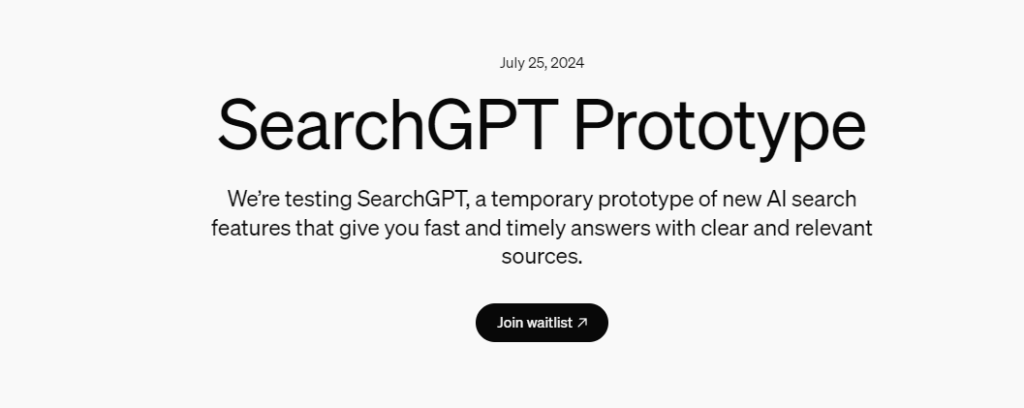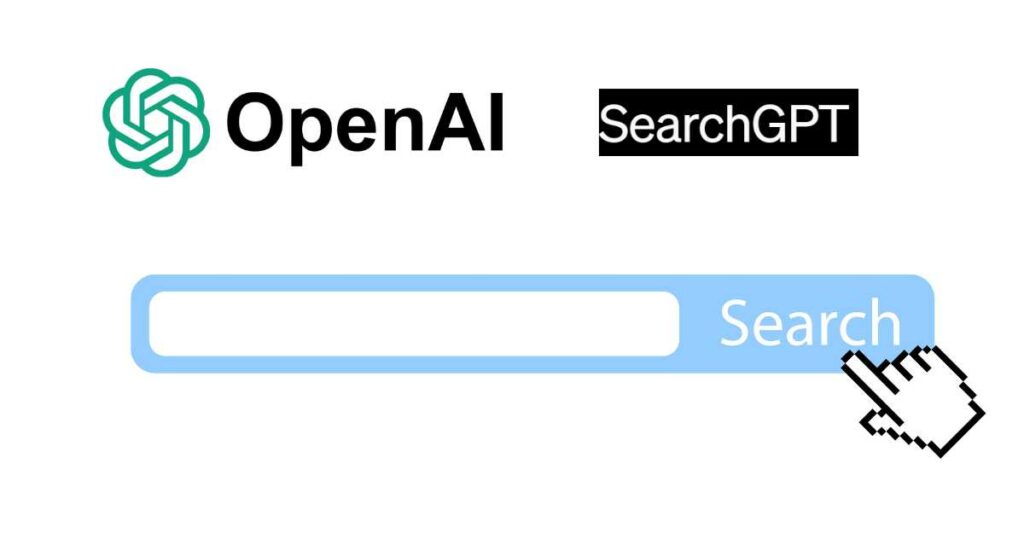Table of Contents
Introduction
On July 25, 2024, OpenAI introduced SearchGPT, a prototype AI-powered search engine designed to revolutionize how we seek information online. This announcement has stirred significant interest and speculation, particularly regarding its potential impact on major search engines like Google.
we think there is room to make search much better than it is today.
— Sam Altman (@sama) July 25, 2024
we are launching a new prototype called SearchGPT: https://t.co/A28Y03X1So
we will learn from the prototype, make it better, and then integrate the tech into ChatGPT to make it real-time and maximally helpful.
What is OpenAI and SearchGPT?

OpenAI is a leading AI research and deployment company known for its advanced AI models, including the popular ChatGPT. SearchGPT is the latest addition to OpenAI’s suite of tools, aiming to provide users with fast, accurate, and conversational search results. This prototype leverages the capabilities of OpenAI’s AI models to deliver real-time information with clear and relevant sources.
Features of SearchGPT
Conversational Search
SearchGPT allows users to interact with the search engine in a conversational manner. Users can ask follow-up questions, making the search process more intuitive and efficient.
Real-Time Information
The prototype integrates real-time information from the web, ensuring that users receive the most current and relevant answers.
Clear Source Attribution
SearchGPT emphasizes transparency by providing clear links to the sources of its information. This feature aims to build trust and encourage users to explore the cited sources further.
Publisher Partnerships
OpenAI has collaborated with various publishers to enhance the quality and reliability of the search results. This partnership allows publishers to manage how their content appears in SearchGPT, ensuring that high-quality content is prominently featured.
Potential Impact
Competition with Google
SearchGPT is seen as a potential competitor to Google, which has long dominated the search engine market. By offering a more conversational and intuitive search experience, OpenAI aims to attract users who seek more interactive and accurate search results.
Challenges and Opportunities
While SearchGPT presents exciting possibilities, it also faces challenges. Ensuring the accuracy of AI-generated responses and addressing copyright concerns from publishers are critical issues that OpenAI must navigate. Nonetheless, the prototype’s emphasis on clear source attribution and publisher partnerships indicates a thoughtful approach to these challenges.
Conclusion
SearchGPT marks a significant step forward in AI-powered search technology. By combining the strengths of OpenAI’s AI models with real-time web information, SearchGPT promises to make online searches faster, more accurate, and more conversational. As OpenAI continues to refine this prototype, it will be interesting to see how it shapes the future of online search and its impact on the broader search engine landscape.
For more information, visit OpenAI’s official announcement.

